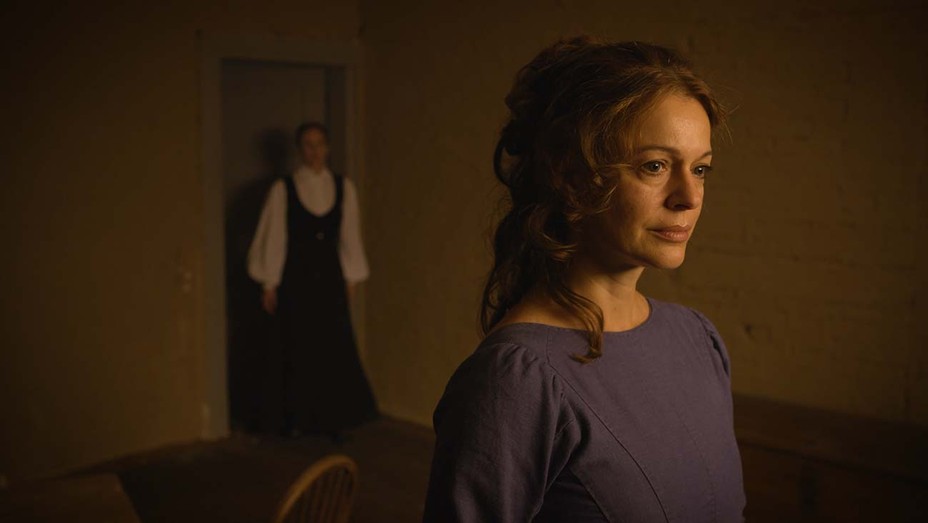
In the early 19th century northern Germany, so many bodies were dying around the widow Gosche Gottfried, she earned a measure of sympathy. Men were also attracted to her even as they, too, began to drop or feel a little ill.
Nobody had a word for serial killing back then; instead they termed it “murderous monomania.” And in Udo Flohr’s stately film about the still-fascinating case, “Effigy — Poison and the City,” there is an effort to try and understand the motivations of the enigmatic suspect, played with sly flirtatious allure by Suzan Anbeh.
A prize winner at festivals and short listed for best foreign movie Oscar, “Effigy” is based on Peer Meter’s play on the subject. Therefore Flohr’s directorial debut can be a little talky. It’s certainly very different than the kind of serial killer movie set in modern times.
And yet that cerebral, methodical approach is very well suited to the time so well reflected in the film — specifically 1828 Germany, when city fathers of Breman were considering creating a new port and weighing the possibilities of something new called the railroad.
The politics and corruption of getting train or port approval is an underlying story to that of the poisonings — which were accomplished surprisingly easily by using little store-bought jars of something called “mouse butter” — lard mixed with flakes of arsenic. Added to lunch or tea, it causes more than rodents to drop.